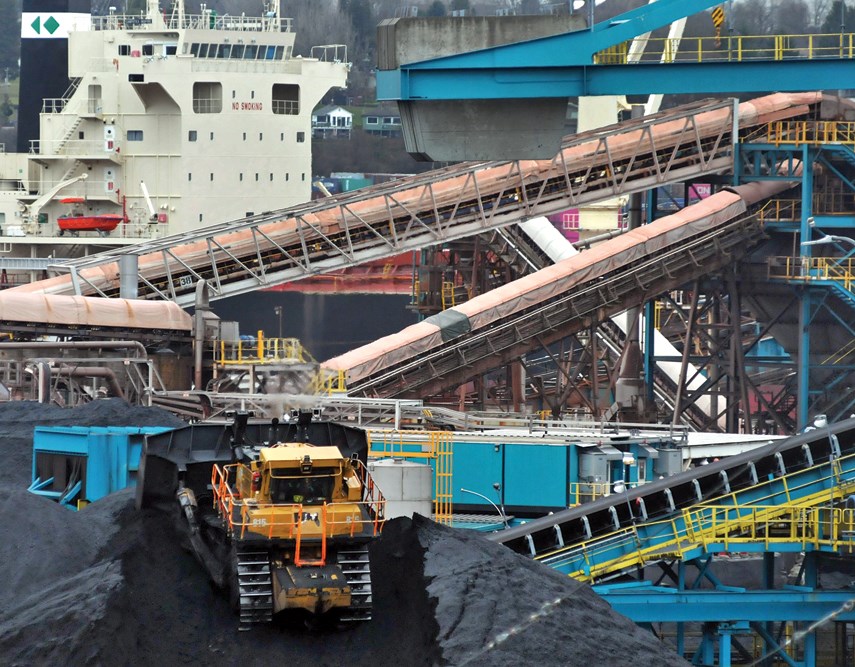North Vancouver’s Neptune Bulk Terminal is preparing to shut down for five months in 2020 before roaring back to life following an $800-million upgrade project.
Mining giant Teck Resources Ltd., which is part owner of Neptune, announced the May-to-September shutdown in its fourth-quarter financial report released last week.
When finished, Neptune will be capable of exporting 20 million tonnes of metallurgical coal per year, compared to 10 million tonnes per year now.
“I wouldn’t say they’re building a completely new metallurgical coal system, but it’s not far from it,” said Claus Thornberg, president of Neptune Terminals. “We’re upgrading most of the existing infrastructure – a major overhaul if you like – so that that we will be able to more than double the capacity for Teck at Neptune.”
New infrastructure coming to the site includes a new ship loader, a new double rotary dumper for offloading by rail cars, one new stacker reclaimer, new rail tracks and an overpass to the “inner circle” of the rail loop.
The numbers of International Longshore & Warehouse Union workers on site at Neptune fluctuates regularly with the amount of product that needs to be moved but Thornberg they have been considered during the furlough.
“We will be engaging our workforce in a lot of commissioning activity, operational readiness activity and training as well. So hopefully it will have little if limited impact on the variable workforce,” he said.
While the site will be host to many construction cranes in the meantime, once the project is finished, the average North Vancouver resident passing by won’t notice much difference overall, except for a larger ship loader, Thornberg said.
North Vancouver-Seymour Liberal MLA Jane Thornthwaite rose in the legislature this week to blame the shutdown on rail blockades and demanded to know what the government was doing about it.
But Thornberg said the terminal was already in a planned outage for construction work, albeit a shorter one, and didn’t have any coal trains scheduled to arrive since before the blockades began.
The blockades and other global events are impacting both the supply chain and demand for metallurgical coal over the short term, Teck’s report states, and the timing of the construction project has been adjusted as a result.
“Given the potential for weaker demand in the short-term due to the effects of the Coronavirus and the high inventory levels due to rail and port constraints, we are choosing to temporarily reduce production and implement a shutdown of Neptune Bulk Terminals in order to progress the facility upgrade,” it read, adding later: “We believe the long-term supply and demand balance for our products is favourable.”
The work has been years in the planning process and it has already received all the permits it needs from the Vancouver Fraser Port Authority, Thornberg said.
Neptune is also currently dredging the berth in front of the terminal to make room for Capesize cargo vessels – so named because they are too large to transit the Panama or Suez canals and therefore generally pass around the Cape of Good Hope in Africa or Cape Horn in South America.



